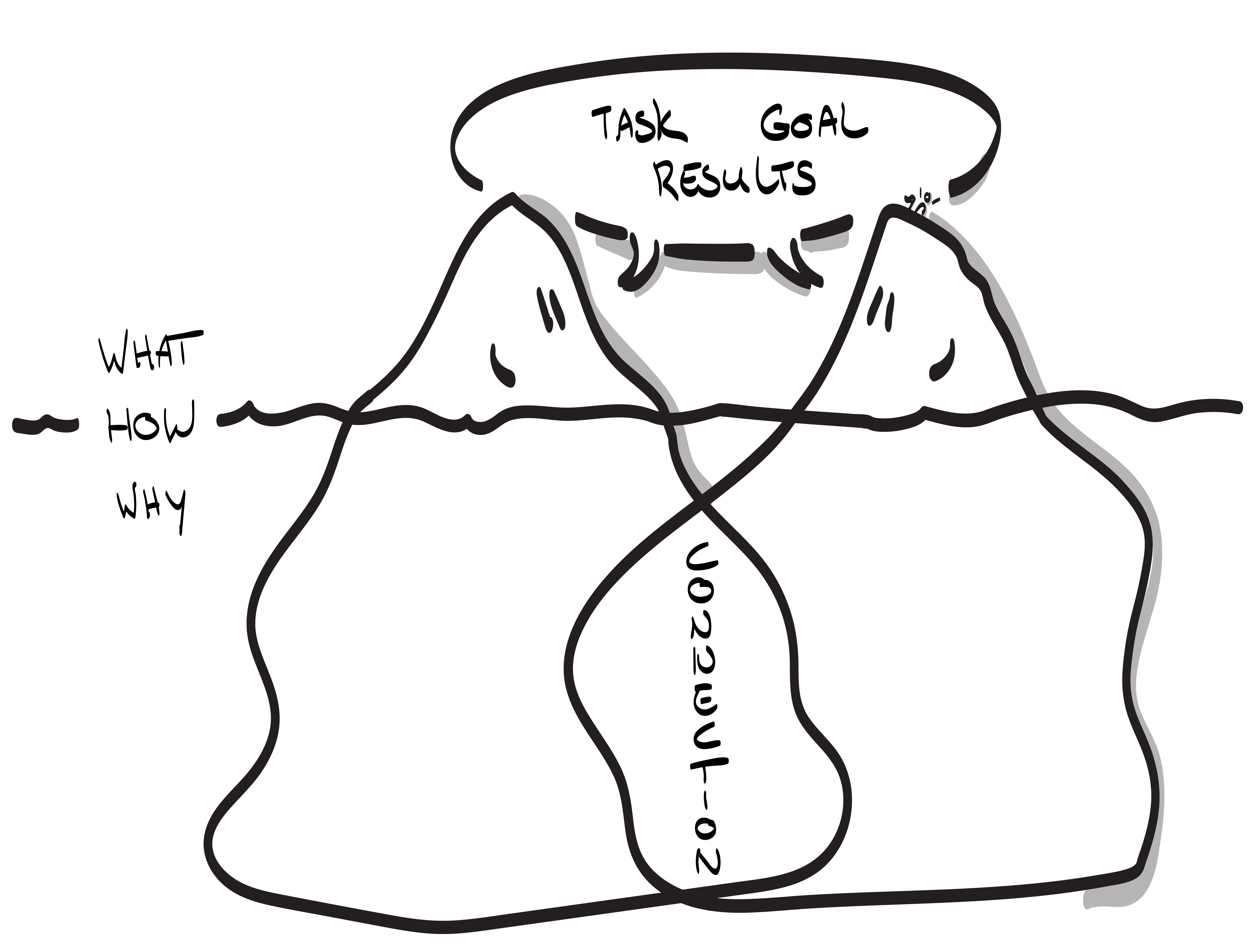We’re hearing it more and more from friends and acquaintances: I really loved working from home at first, but now I find I do miss contact with my colleagues. You probably hear this yourself from time to time, or maybe you’re even experiencing it in your work right now. A study by LinkedIn shows that 40% of people working from home fear social isolation. Of course, working from home has its advantages – less travel time, less distraction by colleagues, being able to organize your time yourself (more efficiently), and so on. But it also has its drawbacks. This article provides an analysis that ends with five tips on how to keep up cooperation even when you have to work from home a lot.
Stopping for a chat by the coffee machine
What we mainly see in the teams we’re in touch with is that people starting avoiding each other more and more – which is quite understandable, for you’re literally working more ‘on your own’ when you spend most of your time at home. The few remaining moments of contact are then nearly always about work: an online meeting with the team, one-on-one contact with a colleague about a joint project, contact with clients and suppliers. All this has an impact on cooperation.
What happens far less is stopping for a chat by the coffee machine, asking a colleague to check something, saying what you’re going to do (or what you did) over the weekend, talking about personal development, or joining in with a conversation between colleagues that you happen to overhear. Without such things, it gets harder and harder for cooperation to grow. Standing still means falling behind – for when you work a lot from home, there’s little or no investment in the trust and connection that are so essential for good feedback, shared goals, responsibility and flow.
Plenty of WHAT, not much WHY
If we take the iceberg as a metaphor, we see that most of the work that be done well online and remotely is at the ‘WHAT’ level: above the surface. And online meetings are often about WHAT and HOW. But real connection between people takes place below the surface – it’s about mission, motivation, personal development and convictions, in other words WHY.
Connection
Teams that were already good at cooperating before Covid and lots of working from home will usually find things easier, because there was already more connection. Of course, they still have to maintain this connection. But if your team is still fairly new, or there was already more distance between its members for some other reason, it will be even more difficult to make the connection now. And how do you help a new colleague feel part of the team if you maybe haven’t really seen each other before? We aren’t even talking here about teams in which there is a degree of mistrust – for at home we no longer see much of the WHAT in the iceberg. What is that colleague actually doing at home, now that you can no longer see it at work? Is he really all that busy?
The risks of avoidance
So at a time like this it’s quite understandable that we regularly lapse into avoidance or feel a slight sense of annoyance, but bottle it up. There are several risks here: it can easily reduce our enjoyment of our work and our motivation, it may interfere with personal and professional development, and often there is no feedback (the quick growth machine). You don’t want to bother anyone – and how will your colleague perceive your feedback when it’s given online? As feedback, or criticism? And then, if I bottle things up any longer, can I still give feedback without getting irritated? Can my colleague take my feedback positively if I give it with feelings of irritation?
Personal leadership
So extra effort is needed to achieve, and maintain, good cooperation at a distance. This calls for personal leadership from all the members of the team. You need to find depth in contact (especially when you can’t see each other) and keep expressing yourself positively.
- Spontaneous: keep doing spontaneous things, especially now that so many moments of contact are deliberately planned.
- Humour put things in perspective, make things fun, challenge each other.
- Personal: make sure your moments of contact are not just about work, and keep on making contact ‘below the surface’.
Five specific things you can do
- Organize a (Covid-proof) team day as soon as possible, if the national Covid regulations allow it – with the focus mainly on keeping in touch, getting to know each other better (again), sharing worries and frustrations, and telling each other how the last few months have been for you (in both your work and your personal life). And if you feel you have spent enough time on this, you can of course also look ahead to what the team members will need from each other in the months to come. Don’t talk too much about work!
- Call a colleague at least once a week just to keep in touch, not about work but about all the rest – to replace those moments at work by the coffee machine or during the lunch break.
- Keep on celebrating successes, and surprise your team with small gifts, bought online and delivered to their homes.
- Keep on praising each other (as personally as possible), even for small things.
- Taking your cue from items 2, 3 and 4, keep investing in giving feedback! Keeping opportunities for improvement, or irritations, to yourself denies you and the team the chance to grow – and then it’s likely that your frustration and mistrust will only increase. Share things, focusing on your shared goal, because you want to help each other. Work together to make things better!
